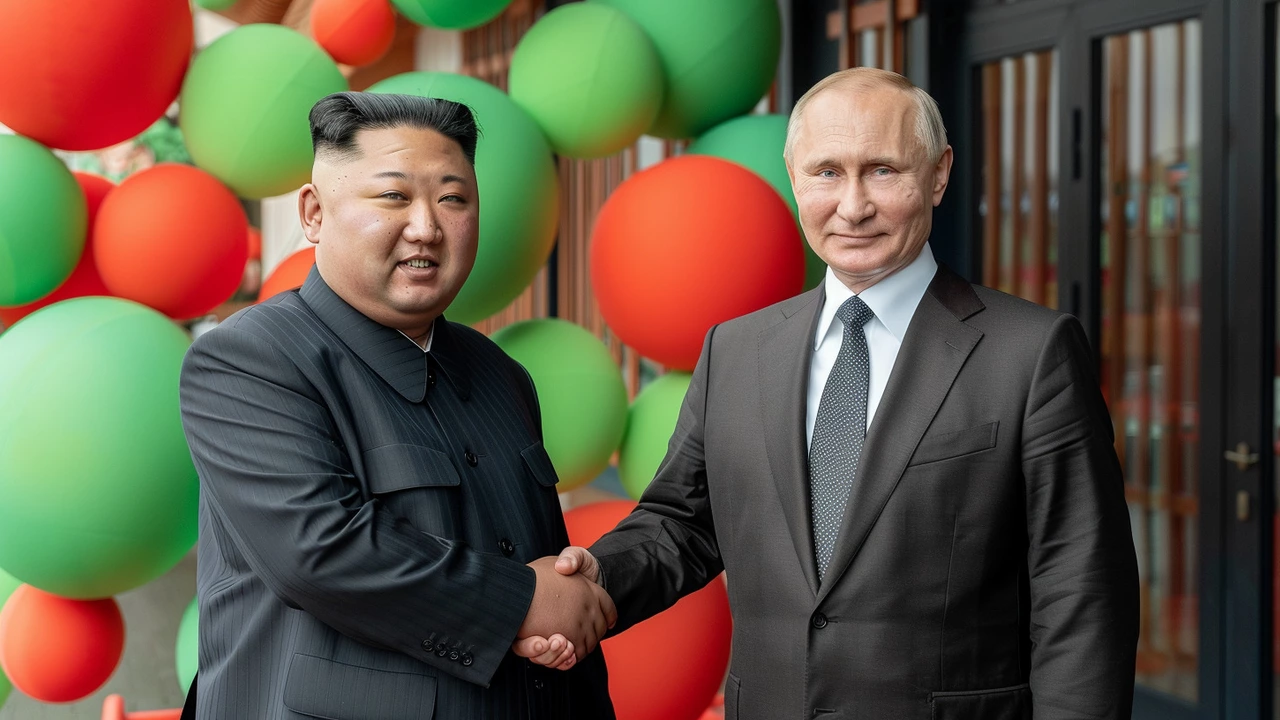China's Influence Looms Over Putin and Kim's Strategic Bond

China's Subtle Influence in Putin and Kim's Alliance
During Vladimir Putin’s notable visit to Pyongyang, the grandeur with which North Korea welcomed him was striking. This was Putin's first visit to the country in over two decades, marking a strategic gesture that aimed to unsettle Western powers. The warm reception, complete with a hug on the tarmac, an elegantly mounted honor guard, and massive portraits of both Kim Jong Un and Putin, was more than just a display of friendship. Kim Jong Un declared his unwavering support for Russia's invasion of Ukraine, a statement designed to resonate loudly across the global political landscape. However, the real nexus of power in this geopolitical theater remained not in Pyongyang, but in Beijing.
China remains a crucial player, exerting significant influence over both Russia and North Korea. This influence circumscribes the actions of Putin and Kim significantly. Chinese trade and political clout act as lifelines for both sanctioned regimes, tethering their geopolitical ambitions within the bounds of Chinese approval. Reports suggest that Chinese officials had discouraged Putin from visiting Pyongyang directly after his meeting with President Xi Jinping earlier this year. The optics of such a visit did not sit well with Beijing, indicating China's strategic reservations.
The Economics of Alliances
China's growing role as the world's second-largest economy with aspirations to challenge US geopolitical dominance adds layers to its strategic calculations. Xi Jinping faces pressure from the US and Europe to reduce support for Moscow, primarily by ceasing the sales of components that drive Russia's war machinery in Ukraine. At the same time, China is grappling with sluggish economic growth and aims to attract tourists and investments to reinvigorate its economy. To this end, Beijing has offered visa-free travel to citizens of certain European countries, Thailand, and Australia, and has dispatched pandas to foreign zoos – symbolic gestures emphasizing its intent to foster goodwill.
President Xi Jinping's vision of a larger global role for China comes with a cautionary note. He is acutely aware that overextending support to pariah states might isolate China and subject it to renewed pressure from the West. While China has consistently provided political cover for North Korea's nuclear ambitions, Xi is skeptical of an emboldened Kim Jong Un. North Korea's frequent weapons tests have spurred Japan and South Korea to agree on a defense pact with the US, leading to a more robust American military presence in the Pacific – a scenario that raises concerns about an 'East Asian NATO' forming right on China's doorstep.
A Delicate Balance
The dynamics within the Putin-Kim relationship are equally complex. Their camaraderie is transactional, and fundamentally, both leaders are mindful not to provoke Beijing. China’s disapproval could impact various facets of their cooperation. Analysts point out that Russia and North Korea, despite the recent warming of relations, operate on different strategic imperatives. Russian technology sales to North Korea, including potential arms transfers, might be reconsidered if this irks China too much. Furthermore, North Korea's military needs also complicate this nascent alliance. Kim Jong Un requires ample supplies to maintain his combat readiness, especially along the Demilitarized Zone (DMZ) bordering South Korea.
The Comprehensive Strategic Partnership agreement between Russia and North Korea, recently developed, does not assure that Pyongyang will be able to consistently supply ammunition or other military resources. Kim's diverse priorities necessitate juggling his domestic military requirements with the broader strategic demands of his alliance with Moscow. Additionally, it's worth noting that the geopolitical landscape of East Asia complicates the trilateral relations among Russia, North Korea, and China.
China's strategic calculus is geared towards preserving stability while preventing any alliances that could provoke a united Western front. Xi Jinping’s administration faces significant internal and external pressures, from managing economic growth to navigating complex international relations. As both Russia and North Korea find themselves increasingly isolated from Western economies and political structures, China’s role as a trade partner and political ally becomes indispensable.
The Geopolitical Chessboard
This intricate web of alliances reveals much about the geopolitical chessboard. Russia and North Korea, both under heavy sanctions from the West, have found in each other a temporary ally. However, the long-term sustainability of their relationship remains underpinned by China’s strategic interests. Beijing’s objections can thwart many of their initiatives, revealing the limited autonomy of their bilateral relationship.
Moreover, the international community watches closely. The US and its allies have a vested interest in ensuring that North Korea does not gain further nuclear and military capabilities through Russian assistance. The presence of additional US warships in Pacific waters demonstrates this strategic vigilance. For President Xi, balancing these complexities involves maintaining China’s position without becoming overly entangled in the conflicts that define the Putin-Kim relationship.
In summary, the budding friendship between Putin and Kim, despite its ostensible warmth, operates within the larger framework dominated by China’s influence. Their transactional bond, while significant, remains circumscribed by the broader strategic imperatives imposed by Beijing. As the geopolitical landscape continues to evolve, the world will watch how these alliances shift, shape-shift, and adapt to the pressures exerted by China, the US, and the broader international community.